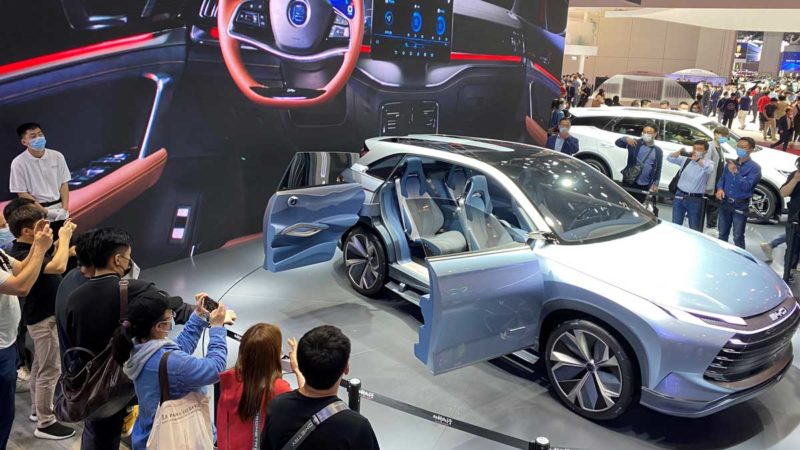The CEO of TrueGreen Mobility, the company bringing three sub-$A35,00 electric vehicles to the Australian market starting in just a few months, has called on global car companies to step up and meet the country’s “significant pent-up demand” for afforable electric vehicles, rather than wait for more favourable government incentives.
Luke Todd on Monday revealed that his company, which has the exclusive distribution rights to BYD EVs in Australia through its subsidiary Nexport, was opening orders for the BYD’s T3 electric van in July for just under $A35,000 (excluding on-road costs), in partnership with the St Baker Energy Innovation Fund and charging infrastructure company Evie Networks.
The electric van, which will offer around 300km of range from its 64kWh battery and will begin deliveries in September of this year, will be closely followed by two BYD passenger vehicles, each of which will also be priced at sub-$35,000, before on-road costs.
Todd said this “significant step forward for e-mobility in Australia” had been made possible by his company with the support of the StBEIF, including a $20 million investment, and with the support of Evie Networks, which is planning to ramp up its charging infrastructure roll-out in response to the news.
But in an interview with The Driven, Todd stressed that his company had – through “signficant investments of our own” – got to the position where it was able to offer three electric vehicles at price parity with ICE cars without government subsidies and without compromising on quality. And he said that other car companies should be able to do the same.
“I’m growing a bit tired of automotive CEOs saying they’re not sending their vehicles to Australia because there are no subsidies,” he told The Driven.
“You shouldn’t need a subsidy. If the car’s good enough and it’s at the right price, it’ll sell itself. It a bit of a call to arms.”
To back up this call to arms, the BYD T3 van will be followed by the EA1, an electric hatchback designed by Wolfgang Egger, the former Audi design chief who is now the Global Design Director at BYD. This will also cost around $35,000, with an even longer range reportedly nearing 500km.
After the EA1 will come the BYD Yuan Plus, the company’s latest take on its all-electric compact SUV, which is sight unseen at the moment but, according to Todd, will leave people “astounded” when unveiled in the near future, considering its price and range.
“These cars really do set the new benchmark,” Todd said, adding that in the case of the Yuan Plus “we have what we believe is a more practical more high quality vehicle” than the Tesla Model 3.
Todd said the company was starting with the electric van, first, in Australia because it had identified the e-commerce sector – last mile deliveries and tradies – as ripe for the greatest impact in the shortest space of time.
He said the company anticipated deliveries in the “tens of thousands” in the first few months due to “significant pent-up demand” for more competitve EVs.
“We’ve been strategically waiting for the right time to come on the market,” he told The Driven.
“We are two leading Australian companies, including a leading EV charging company in Australia, connecting two of the biggest dots of how to get EVs on the road.
“It’s about proving how good they are. Once you drive an EV nobobdy really wants to go back to a normal vehicle,” he said.
“We don’t need [governments] to provide grants, or mandates, but just guidance around decision making, helping send the message that [electrifying] transport is one of the easiest ways we can make a difference.
“To me this is not about climate change – that’s a far bigger problem. To me this is about pollution in the air in and around cities and streets, and how removing that is a major health benefit.
“So some encouraging [government] messaging around EV uptake would be welcome. But I sit very differently to other CEOs,” Todd said.
“[Electric vehicles are] more reliable, better for the environment, better for the community and range anxiety or any of those earlier arguments have now dissipated.
“The only question now is ‘why not?'”

Sophie is editor of One Step Off The Grid and deputy editor of its sister site, Renew Economy. Sophie has been writing about clean energy for more than a decade.

